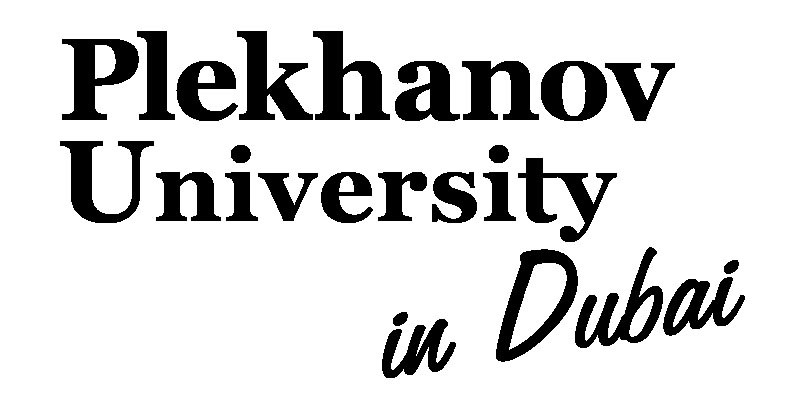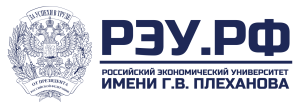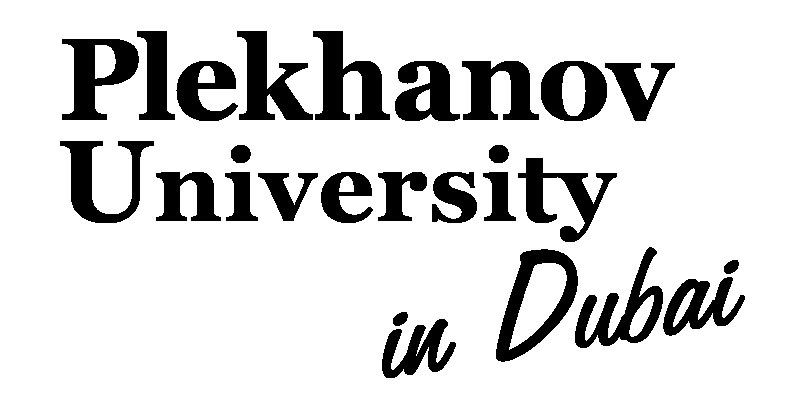Категории курсов
Пропустить доступные курсы
Доступные курсы
Assessment Design and Quality Assurance
Effective assessment design is a critical component of academic quality and student success. It ensures that all evaluations are fair, transparent, valid, and aligned with both institutional and national quality assurance frameworks. At our University, assessment design is guided by the principles outlined in the QFEmirates Framework, which together provide a structured approach to ensure academic rigor and consistency across all programs.
Assessments are designed to measure the achievement of Intended Learning Outcomes (ILOs) at the appropriate QFEmirates level, reflecting the cognitive, practical, and transferable skills expected of students. Each assessment task must therefore demonstrate clear alignment between course outcomes, learning activities, and assessment criteria, ensuring that students are evaluated on relevant and meaningful aspects of their learning.
Embedding quality assurance processes in assessment design—such as internal moderation, peer review, and external benchmarking—ensures that assessments are not only reliable but also equitable across courses and delivery modes. Moderation plays a key role in maintaining academic integrity and comparability of standards, allowing the institution to verify that marking is consistent, feedback is constructive, and grade distributions are justifiable.

Assessment Design and Quality Assurance
Effective assessment design is a critical component of academic quality and student success. It ensures that all evaluations are fair, transparent, valid, and aligned with both institutional and national quality assurance frameworks. At our University, assessment design is guided by the principles outlined in the QFEmirates Framework, which together provide a structured approach to ensure academic rigor and consistency across all programs.
Assessments are designed to measure the achievement of Intended Learning Outcomes (ILOs) at the appropriate QFEmirates level, reflecting the cognitive, practical, and transferable skills expected of students. Each assessment task must therefore demonstrate clear alignment between course outcomes, learning activities, and assessment criteria, ensuring that students are evaluated on relevant and meaningful aspects of their learning.
Embedding quality assurance processes in assessment design—such as internal moderation, peer review, and external benchmarking—ensures that assessments are not only reliable but also equitable across courses and delivery modes. Moderation plays a key role in maintaining academic integrity and comparability of standards, allowing the institution to verify that marking is consistent, feedback is constructive, and grade distributions are justifiable.
This course introduces fundamental concepts in probability and statistical analysis, focusing on practical applications in marketing. Students will explore counting techniques, probability theorems, random variables, and probability distributions (discrete and continuous). The course also covers sampling methods, statistical inference, confidence intervals, hypothesis testing, correlation, and regression analysis.
Through case studies and hands-on exercises, students will apply statistical techniques to real marketing data, enabling them to analyze consumer behavior, assess campaign effectiveness, and support data-driven decision-making. By the end of the course, students will be proficient in using statistical tools for marketing research and analytics.
This course introduces fundamental concepts in probability and statistical analysis, focusing on practical applications in marketing. Students will explore counting techniques, probability theorems, random variables, and probability distributions (discrete and continuous). The course also covers sampling methods, statistical inference, confidence intervals, hypothesis testing, correlation, and regression analysis.
Through case studies and hands-on exercises, students will apply statistical techniques to real marketing data, enabling them to analyze consumer behavior, assess campaign effectiveness, and support data-driven decision-making. By the end of the course, students will be proficient in using statistical tools for marketing research and analytics.
This course introduces fundamental concepts in probability and statistical analysis, focusing on practical applications in marketing. Students will explore counting techniques, probability theorems, random variables, and probability distributions (discrete and continuous). The course also covers sampling methods, statistical inference, confidence intervals, hypothesis testing, correlation, and regression analysis.
Through case studies and hands-on exercises, students will apply statistical techniques to real marketing data, enabling them to analyze consumer behavior, assess campaign effectiveness, and support data-driven decision-making. By the end of the course, students will be proficient in using statistical tools for marketing research and analytics.
This course presents both theoretical and practical aspects of general and strategic management. The course focuses on fundamental aspects of management in an organization, such as assessment of organizational performance, internal and external environment, and developing and implementing strategies on various levels. The course also comprises developing and implementing innovation strategies as well as ethical considerations when running the business. The content and structure of the course have been designed for students who aim at learning management technologies at both basic and advanced levels. Most topics of the course are considered from the point of view of efficient usage of organizational inputs. The result-oriented tools and technologies presented in the course aim at enhancing the efficiency of management.
The internship provides students with practical, on-the-job experience, which allows them to integrate theory with “real-world” situations. The internship is academically supervised by a faculty member and professionally supervised by the company’s internship supervisor, who provides feedback to the university about the student’s progress. This course is aimed at developing scientific skills. The application areas will include a wide range of different information systems. The course also provides a broad overview of the current state of the selected company in the UAE, as well as analytical tasks related to its impact on the external environment. The main purpose of such a study is to summarize the results of the analysis in the form of a scientific report/scientific article.
This course will present the students with a comprehensive set of skills necessary to address professional challenges within a business environment and to make informed organizational and managerial decisions, considering their economic and social significance in a framework of the contemporary UAE business landscape.
The general goal of the course is to provide a set of hard skills that would allow students to solve business tasks in a professional environment, utilizing their knowledge of economic, organizational, and managerial theory. The students will be encouraged to develop fact-based managerial strategies and solutions, taking into account the aspects of their impact on a particular company, industry, and society as a whole. The key component of the course is a study of implementation outcomes of said strategies and solutions under complicated and dynamic conditions.
The course aims, in particular, to:
1. Solidify the student’s grasp of economic, organizational, and managerial theory;
2. Demonstrate to the students common business managerial cases related to individual diversity, job satisfaction, personality traits, values, decision-making, group dynamics and communication, leadership, power, politics, conflict, negotiation, organizational culture, and change management, and to teach a proper assessment approach to such cases;
3. Allow students to practice the presentation of composite solutions to professional management issues and tasks, based on a solid understanding of the current economic and societal landscape of UAE businesses, as well as general contemporary organizational and managerial theory.
4. Raise the students’ competencies in assessment and analysis of controversial managerial situations in business administration.
This course equips students with the knowledge and skills necessary to conduct effective marketing research. Through a combination of knowledge (understanding the core principles of marketing research methodology), comprehension (interpreting research data and findings), application (designing and implementing research studies), analysis (evaluating the effectiveness of research methods), and synthesis (developing research proposals and communicating findings), students will gain a comprehensive understanding of the research process and its critical role in informing marketing decisions.
The course covers various research methodologies, including quantitative (surveys, experiments) and qualitative (focus groups, interviews) approaches. Students will learn how to formulate research questions, develop research designs, collect and analyze data, and draw meaningful conclusions. Ethical considerations in marketing research will also be emphasized.
The course will present both theoretical and practical aspects of decision-making in the international strategic management process. The primary focus will be on various international business strategies. Major topics will include strategic planning in an international company, formation and implementation of international strategies, international organization design, and control function in international business. This course will also present types of international business, basic strategic alternatives available to firms, components of international strategy, levels of international strategies, and levels and functions of control in international business. The course is contextualized to the UAE through the integration of the relevant cases.
This course will present both theoretical and practical aspects of cloud computing and services. The primary focus will be on learning concepts related to cloud computing and services. Major topics will include: exploring the Microsoft Azure cloud platform, its main features and principles of development in this environment, familiarization with the types of services provided by cloud systems, as well as with the organization of data centers in the field of cloud services, studying the features of data storage in the cloud, the possibilities of managing, filling, and editing information and graphics by the client, the threats of business development in a cloud environment. This course will also present the principles of creating virtual machines in different systems from both well-known vendors and open-source projects. The emphasis will be on the characteristics and evolution of cloud computing markets, both globally and in the Middle East and North Africa countries, including the United Arab Emirates.
This course will present both theoretical and practical aspects of applying tools of econometrics for prediction and policing purposes. Students will be provided with required theoretical tools, get acquainted with the theoretical properties of the appropriate econometric estimation and testing procedures under various modeling assumptions, will get a sound understanding of the applicability and limitations of various models as the vehicles for econometric analysis of the available data. The main objectives of the course are to teach students to apply econometric methods to the investigation of economic relationships and processes; verify economic facts, theories and models with real data; evaluate the quality of statistical and econometric analysis; do and evaluate forecasting for time series and cross section data; understand econometric methods, approaches, ideas, results, and conclusions met in various books and articles.
This course introduces students to the field of consumer behavior, exploring the psychological, social, and cultural factors that influence consumer decision-making processes. Through a combination of knowledge (understanding the terminology and theoretical underpinnings of consumer behavior), comprehension (interpreting research findings and case studies), application (applying frameworks to analyze consumer behavior in real-world scenarios), analysis (evaluating the effectiveness of marketing strategies on consumer behavior), and synthesis (developing marketing strategies that target specific consumer segments), students will gain a critical understanding of the "why" behind consumer choices.
This course will equip students with the ability to:
· Evaluate the influence of internal (psychological) and external (social and cultural) factors on consumer behavior.
· Analyze consumer decision-making processes across different product categories and purchase situations.
· Apply consumer behavior frameworks to marketing problems and develop targeted marketing strategies.
· Synthesize knowledge from various disciplines to understand the complexities of consumer behavior in a global marketplace.
By the end of this course, students will be well-positioned to develop effective marketing strategies that resonate with consumers and drive successful business outcomes.
This course provides a comprehensive understanding of auditing and control systems in corporate finance. It emphasizes the principles, processes, and practices used to evaluate and enhance the accuracy, reliability, and integrity of financial information. The course also covers regulatory frameworks, ethical considerations, and the role of technology in auditing.
This course delves into the principles and methods of financial and economic analysis used in strategic corporate decision-making. It emphasizes the integration of theory and practice to evaluate business opportunities and risks within the global and Middle Eastern economic contexts, particularly the Dubai financial sector.
This course provides students with the foundations of applied microeconomic analysis. The primary goal is to develop the abilities of students to apply fundamental microeconomic concepts to a wide range of managerial and financial decisions, as well as public policy issues. Foundation topics include market demand; market power and price-setting behavior; basics of game theory; factor markets, market failures. Students will also be introduced to more advanced aspects of microeconomic analysis. Advanced topics include decision-making with risk and uncertainty; game theory and competitive strategy, and complex pricing strategies.
This course will present both theoretical and practical aspects of corporate finance management. The main focus will be on managing the financial resources of a modern company. For successful management, the following issues will be studied: value, risk management features, budgeting practices, fundamentals of financial decision-making, features of capital structure formation, corporate goal setting, the expediency of attracting debt financing, as well as the implementation of corporate control. This course allows you to study both the specifics of the company's internal financial policy and to understand the essence of the impact of external macroeconomic factors, ways to flexibly adapt to them.
The course is a foundation for advanced courses such as Company Cash Flow Management, Investment Analysis and Investment Project Management, Valuation of company assets, and Corporate Financial Planning and Budgeting.
This course will present project management as a major managerial approach to accomplish unique outcomes with limited resources under critical time constraints. In the service sector of the economy, the use of project management to achieve an organization’s goals is even more common as well as use of projects as a way of accomplishing strategic organizational changes, typically in conjunction with new software and other advanced technologies. Transformational change on this level is a major step beyond the delivery of a project’s outputs like a road, a building, a new product, or a computer program. The scope of strategic transformational projects frequently involves dynamic perturbations, meaning that the project manager and other stakeholders have to alter course throughout the duration of the project. Throughout the course “Project Management” a managerial life-cycle perspective addresses the basic nature of managing all types of projects, e.g., public, business, engineering, information systems, as well as the specific techniques and insights required to carry out this unique way of getting things done.
The aim of the course is to form students' understanding of risk management processes in a company in relation to various categories of risks: operational, strategic, and financial. The course covers the main stages of risk management: risk identification, risk assessment, and the choice of risk management method (control, retain, or transfer). The methodology for determining corporate risk appetite level is also discussed in the course. Qualitative and quantitative methods of risk management are considered. Quantitative assessment of operational and financial risks is done by means of specialized software (ModelRisk).
This course will present both theoretical and practical aspects of management delving into the fundamental principles and practical applications of management theories. Students will explore various theoretical frameworks that underpin the field of management, including classical, behavioral, contingency, and modern management theories. The course aims to equip students with a deep understanding of how these theories can be applied in real-world organizational settings to enhance decision-making, leadership effectiveness, and organizational performance. Through a combination of lectures, case studies, and group discussions, students will develop critical thinking skills and analytical abilities to evaluate and apply management theories in different contexts. By the end of the course, students will have a solid foundation in management theory and be able to effectively analyze and address complex management challenges.
This course will present both theoretical and practical aspects of strategic management. It is a comprehensive course designed to provide students with a solid foundation in strategic management principles and practices. The course covers key topics such as strategic analysis, formulation, implementation, and evaluation of business strategies. Students will learn how to develop and execute effective strategic plans to achieve organizational goals and objectives. The course also explores the role of leadership in strategic decision-making, the importance of competitive advantage, and the impact of external factors on strategic management. Through case studies, group projects, and discussions, students will gain practical skills and knowledge to succeed in the dynamic and competitive business environment.
This course will present both theoretical and practical aspects of strategic management. It is a comprehensive course designed to provide students with a solid foundation in strategic management principles and practices. The course covers key topics such as strategic analysis, formulation, implementation, and evaluation of business strategies. Students will learn how to develop and execute effective strategic plans to achieve organizational goals and objectives. The course also explores the role of leadership in strategic decision-making, the importance of competitive advantage, and the impact of external factors on strategic management. Through case studies, group projects, and discussions, students will gain practical skills and knowledge to succeed in the dynamic and competitive business environment.
This course will present project management as a major managerial approach to accomplish unique outcomes with limited resources under critical time constraints. In the service sector of the economy, the use of project management to achieve an organization’s goals is even more common as well as use of projects as a way of accomplishing strategic organizational changes, typically in conjunction with new software and other advanced technologies. Transformational change on this level is a major step beyond the delivery of a project’s outputs like a road, a building, a new product, or a computer program. The scope of strategic transformational projects frequently involves dynamic perturbations, meaning that the project manager and other stakeholders have to alter course throughout the duration of the project. Throughout the course “Project Management” a managerial life-cycle perspective addresses the basic nature of managing all types of projects, e.g., public, business, engineering, information systems, as well as the specific techniques and insights required to carry out this unique way of getting things done.


